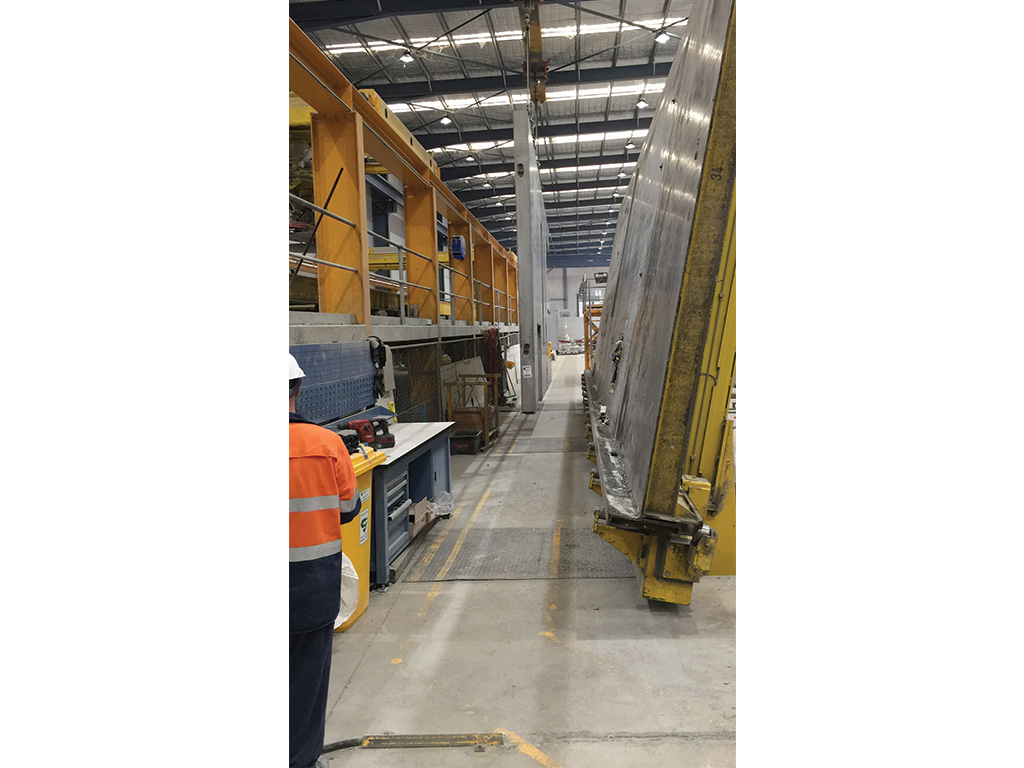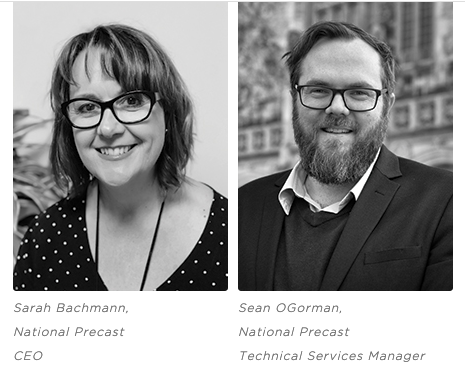

A RESEARCH PROJECT DESIGNED TO EXPLORE THE INTERNAL ORGANISATIONAL PROCESSES OF OFFSITE MANUFACTURING COULD BE A GAME CHANGER IN THE QUEST FOR GREATER MARKET SHARE FOR THE OFFSITE SECTOR.
On a global scale, 200,000 people are moving into urban areas every day. This huge flow of people into already highly populated areas is creating a significant demand for infrastructure, from accommodation, to office space, to road and rail.
Construction stagnates while manufacturing progresses Over the past 50 years, an over-reliance on traditional construction methods has resulted in stagnated productivity. Over the same time period, the manufacturing industry has seen productivity improvement that exceeds 150%.
According to National Precast’s CEO Sarah Bachmann, there is little doubt that to meet the demand for infrastructure, the construction industry needs to embrace the principles of industrialisation: standardisation, automation, and modularisation.
“For real productivity gains in construction, the specification of offsite manufactured products in construction must be implemented on a broad scale,” she comments.
“For real productivity gains in construction, the specification of offsite manufactured products in construction must be implemented on a broad scale.”
Sarah Bachmann, CEO, National Precast.
However, she says it is not enough to simply ‘construct’ this infrastructure.
“In the modern era, end users are demanding more sustainable and affordable infrastructure, that is of higher quality and more durable, yet produced in significantly shorter time frames,” she says. All of this comes at a time where the construction industry is facing a skills shortage and rising input costs.
OFFSITE CONSTRUCTION + MANUFACTURING ADVANCES
Offsite construction (OSC)’s manufacturing pedigree makes it an ideal fit for principles of standardisation, automation, and modularisation. And globally there is a strong push for an increased uptake of OSC; empirical research has demonstrated the benefits of OSC, including a reduction in costs and shorter project timelines. In fact, there are benefits of OSC to all industry stakeholders.
RESEARCH EXPLORES MANUFACTURING PROCESSES TO FAST-TRACK MATURITY
National Precast Engineering Services Manager Sean O’Gorman, is currently completing a Doctor of Philosophy (PhD) at the University of Adelaide around manufacturing processes, and specifically precast manufacturing processes. His future research aims to explore the internal organisational processes within OSC manufacturers, more specifically project management processes within precast factories.
As OSC manufacturers operate within a project environment, often juggling multiple projects at once, it is important to understand how to increase project performance, O’Gorman says. This is especially pertinent as projects are the lifeblood of these organisations.
“While project management is nothing new, its application within Small and Medium Enterprises (SMEs) is largely unexplored.”
“Formal project management tools and processes are often resource intensive and difficult to implement, and thus their use is often patchy in SMEs. Combine this with the general notion that manufacturing is more ‘operations based’, it is easy to see why project management as a mode of management is often sidelined, while ‘operations management’ is favoured.”
National Precast’s Sarah Bachmann concurs in light of experiences in the precast manufacturing industry.
“Certainly there are huge benefits just from engaging prefabricated or offsite manufactured elements like precast as a core construction method, but there are additional benefits to come from manufacturers embracing sophisticated project management tools to further enhance productivity,” she says.
“Looking at the key dynamic within the industry, it is clear to see that the driver behind the focus on operations management is driven by a need to improve operational efficiencies as manufacturers operate in a market where price is king. Therefore, the goal is not to replace one with the other, but instead to drive a focus on project outcomes that go beyond simply meeting budget.”
MOVING FROM SIMPLICITY TO MATURITY
To do this, O’Gorman suggests an organisation will need to move processes from relative simplicity to more sophistication, often known as increasing maturity.
The term maturity itself is broad and can be applied to many different contexts. Here it is applied to organisational maturity, with further refinement to organisational project management maturity (OPMM). OPMM is widely accepted as a way for organisations to improve the performance of projects. By identifying the level of maturity needed for a process, an organisation can work towards improvement, allowing for greater control and oversight, ultimately resulting in an increase in performance.
While there are a range of OPMM models on the market, including the most notable OPM3 from the Project Management Institute, the resource intensive nature of these suggests that none are as yet suitable for OSC manufacturers, who operate in a hybrid environment of projects, operations and manufacturing.
“Taking a project management approach, my future research will aim to move precast manufacturing processes to a more mature stage. By developing a context specific framework for manufacturers to improve their project performance, the precast industry should share in a larger proportion of work,” says O’Gorman.
“Taking a project management approach, my future research will aim to move precast manufacturing processes to a more mature stage. By developing a context specific framework for manufacturers to improve their project performance, the precast industry should share in a larger proportion of work.”
Sean O’Gorman, Engineering Services Manager, National Precast.■

